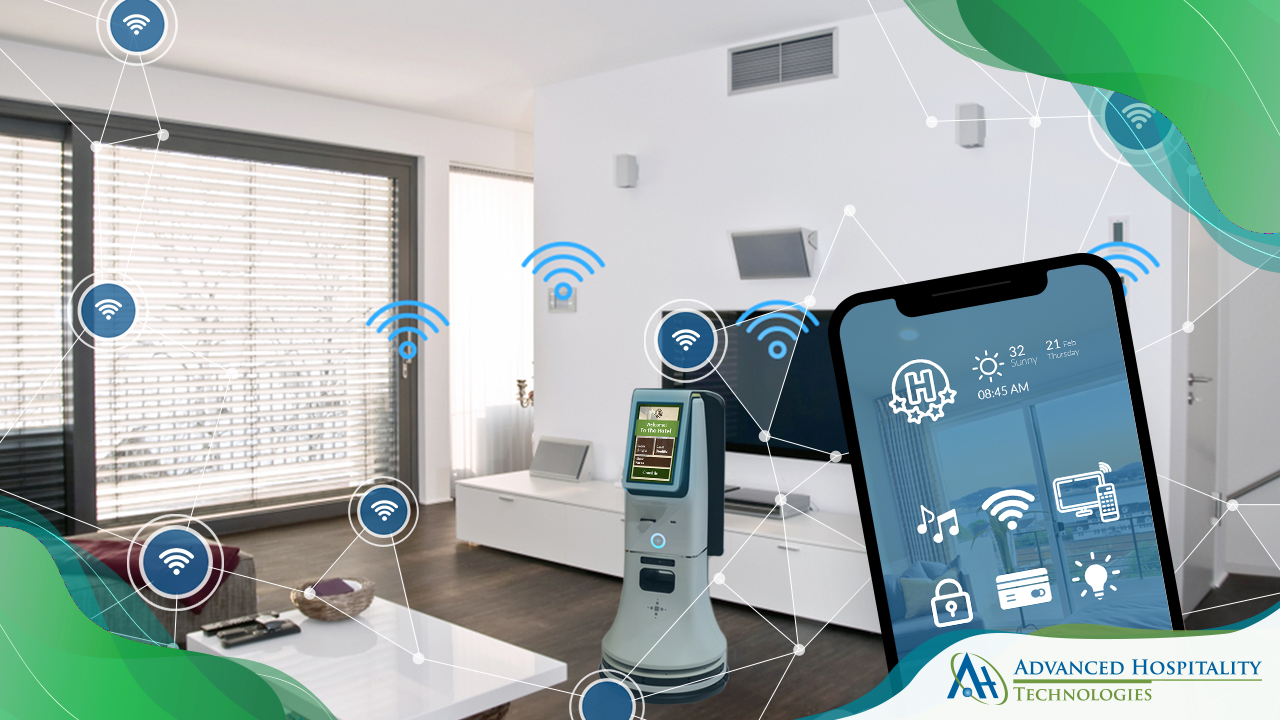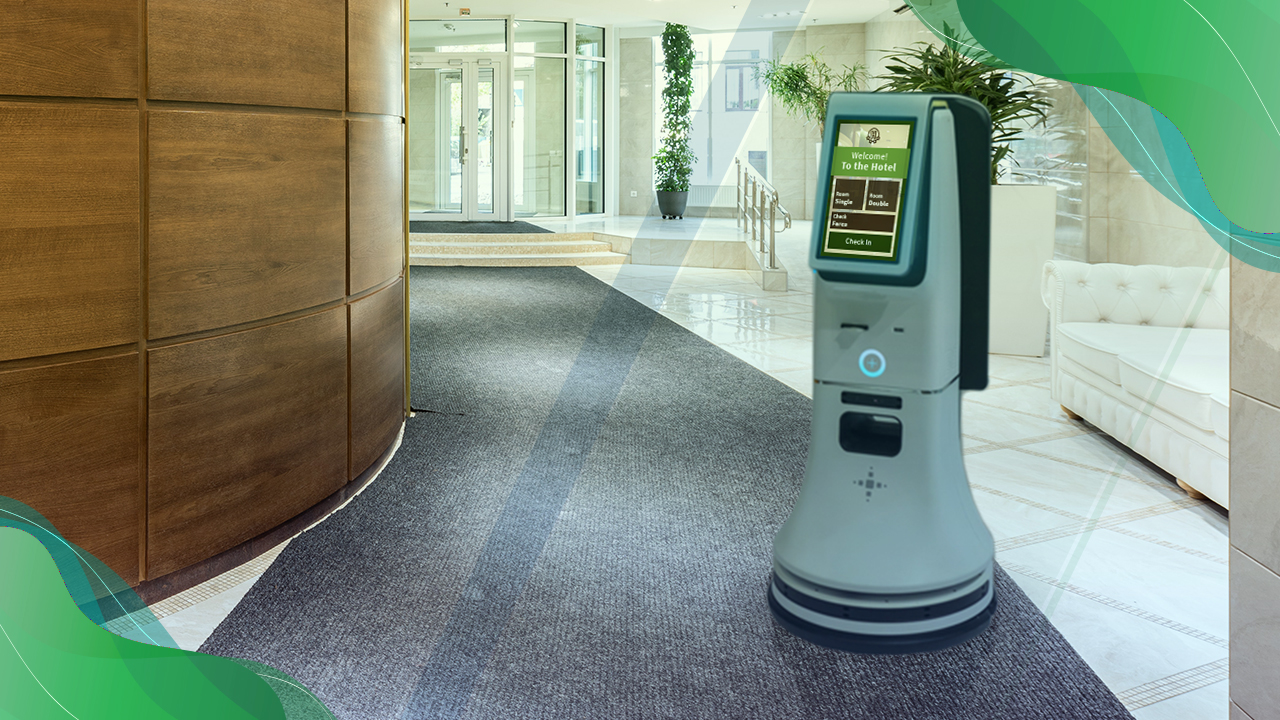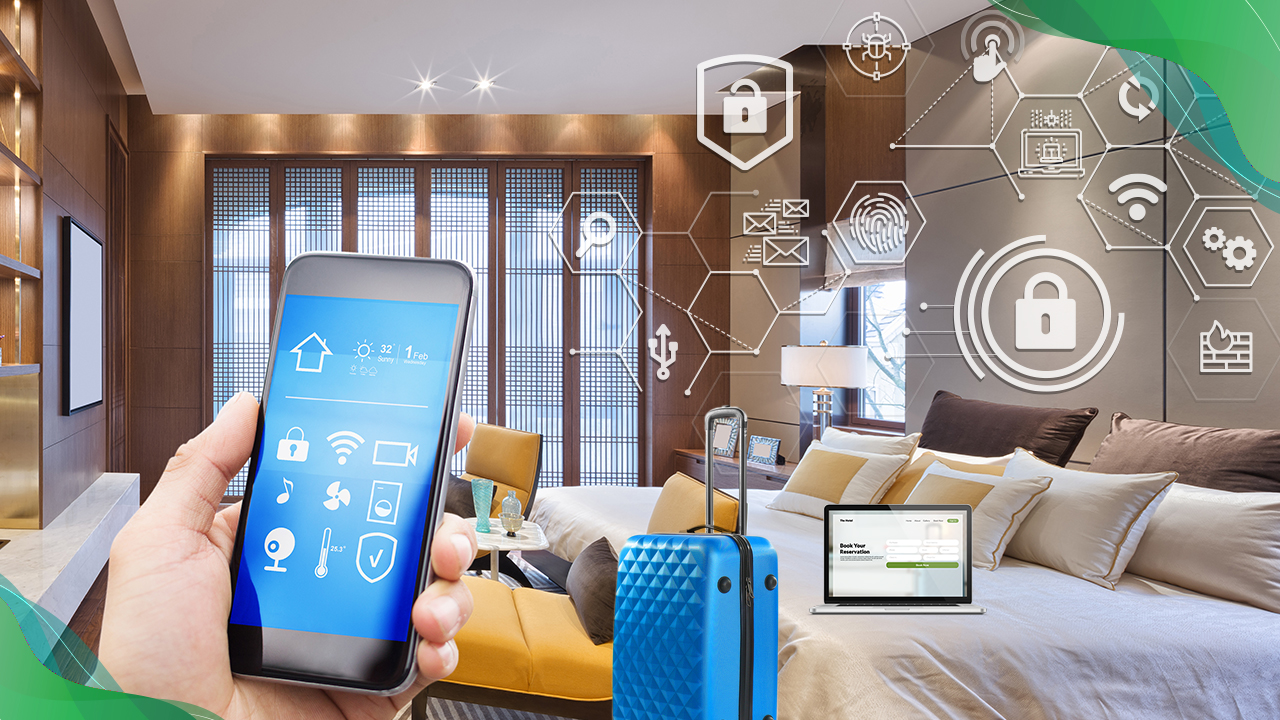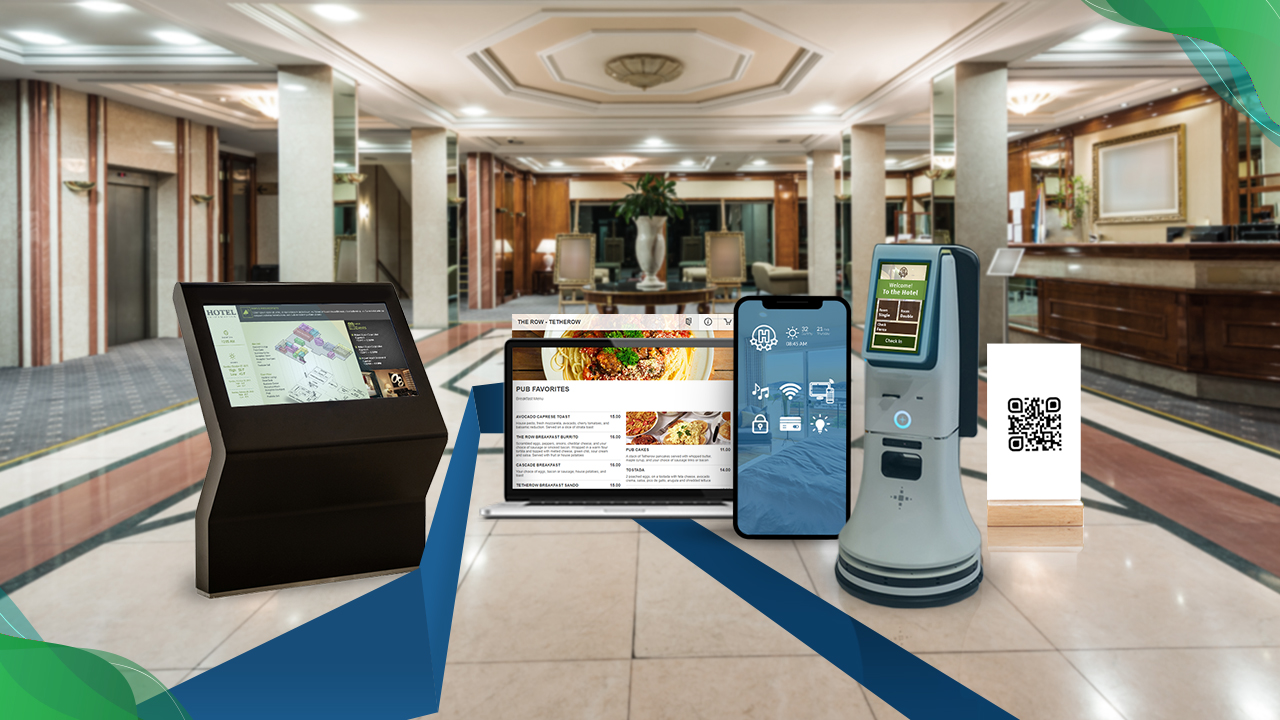US hoteliers are increasingly investing in innovative technology to offer guests a touchless experience in assets. The recent, Smart Hospitality Market – Forecasts 2020 to 2025, by Research & Markets identified that the smart hospitality services industry is predicted to grow to slightly over $12 billion in 2025 compared to $6 billion in 2019.
Hotels across the world are now rebuilding trusts with their guests through a mix of contactless technology and health safety solutions. Smart hospitality solutions are proving to be immense for operators in the pursuit to reopen business, minimize operational costs and generate additional revenue.
What is a Contactless Technology Experience
Contactless technology experiences are not really new. Contactless services had become part of the hospitality business well before 2014 when hotel franchises had begun to roll out smartphone apps, digital guest services through websites, robot butlers, and smart rooms.
Mohammed.S.Ziaee, Director of Information Technology -AHT Inc., defines contactless guest experiences as follows:
“Contactless guest experience is a set of standards and technologies adopted (by hotels) to minimize the risks of transmitting COVID-19 while offering guests the same premium quality services they love.”
Modern travelers demand more digital services that allow onboarding, room access, luggage delivery, and room service to be instant. The contactless guest experience is such a model that allows guests health safety while speeding up the service delivery with vast personalization.
The contactless guest experience is designed to provide guests more convenience, better health safety, and customization when staying at hotels. For hoteliers, the contactless guest experience entails better guest satisfaction ratings, more avenues for revenue growth, and proven minimization of operational costs.
How to Build Contactless Guest Experiences
The contactless guest experience as our above definition defines is a mix of standards and technologies. These standards and technologies must be carefully planned, designed, integrated and monitored to ensure genuine guest satisfaction.
Digital Marketing
It may not be the number one go to medium for hospitality businesses today, but in coming years digital marketing will be the leading driver to reach out to audiences. Today hotels are using a mix of practices and tools to stay ahead of the competition for better visibility online.
One of these tools is the advanced use of Search Engine Optimization (SEO) which allows hotels to appear in local online searches. The introduction of tools like Google My Business, Trip Advisor, Booking.com, and external blogs has allowed marketers to easily discover untapped audiences and connect with existing customers directly.
Hoteliers have also harnessed the power of communities, and have already built social media communities populated by loyal guests. Building these groups of loyal brand ambassadors allows hoteliers to enhance the visibility of their brand through real time influencers.
Paid advertising services through Google has also allowed major franchises and even local hospitality providers to reap the benefits of digital marketing. Ad placement on relevant websites, blogs, and apps have allowed brands to appear top of traveler searches, allowing them direct access to their relevant audiences.
Digital Bookings
Digital bookings have been there in hospitality for over 10 years now. The development of websites and now smartphone apps have completely changed the way travelers can interact with their favorite hotel brands.
The ability to research hotels, rooms, and facilities through a website was already a game changer, providing travelers perfect information about their preferred hotels. Today hotels are offering even simpler booking interfaces through their signature mobile apps.
One of the most popular smartphone apps, Marriott Bonvoy, allows guests to search through over 5000 hotels and gives them the ability to book rooms instantly through the app.
Digital Check-In & Check Out
Probably the most demanded of services, digital check-in is the perfect solution to crowded lobbies and rush hours. Not only is digital check-in a brilliant feature for guests, but a great safety feature that allows hotels to maintain strict health SOPs for COVID19.
The amazing aspect of digital check-in is that it can be website based and smartphone app based. Guests can simply tap on their smartphone, a tablet device, or a digital check-in kiosk to complete the arrival process and move to their rooms.
Keyless Entry
Digital keyless entry is one of the most popular features hotels are offering within their contactless guest experiences.
Powered by NFC and Bluetooth technologies, the keyless entry is one stone, two bird solution. Keyless entry allows guests to tap their smartphone screen to access their rooms with no physical key to carry.
Keyless entry provides multiple benefits to guests with added room security, convenience, and portability in one contactless service. Similarly, hotels can reap great benefit from keyless entry services including massive key replacement cost savings, liability management against COVID19, and enhancing the guest experience.
Digital Concierge
The digital concierge is a highly effective feature providing guests instant assistance through smartphones, websites, and Smart TVs.
The digital concierge adds to the personalized experience, providing guests timely assistance and information. The concierge can easily distribute tasks to staff, ensuring faster service delivery.
Smart Rooms
The final piece of the contactless experience is the actual smart room where the guest stays. This is usually where most of the “technology” of the contactless guest experience resides. From temperature control to digital entertainment, the smart room experience is really where the contactless experience delights the guest.
Many hotels are also integrating Amazon’s Alexa, Google Home, and Apple voice assistants in guest rooms to make the guests feel right at home. Smart TVs are also a major component of the contactless experience, with digital entertainment one of the top features demanded by travelers in various surveys.
Using IoT smart are retrofitted with sensors to provide guests direct access of smart features through room tablets.
Conclusion
Contactless technology solutions are a popular way for hoteliers to rebuild trust with their guests. Over 80% of travelers already research their travel ideas online before booking stays in hotels. Hotel operators must therefore completely revisit their service design and develop guest experiences based on completely new preferences.
At AHT Inc. our contactless solutions toolkit allows hotel owners to reopen assets safely for guests. From the renovation of smart rooms, to highly secure room access solutions AHT Inc. offers vetted and quality assured tools to enhance hospitality experiences.
I hope you enjoyed this edition of our blog, for more interesting hotel technology management insights connect with us over Live Chat today. Until next time, see you again soon.
Advanced Hospitality Technologies is a leader in Hospitality Technologies. We have an award winning benchmark for providing affordable, reliable and most advanced hospitality Technology Solutions.




